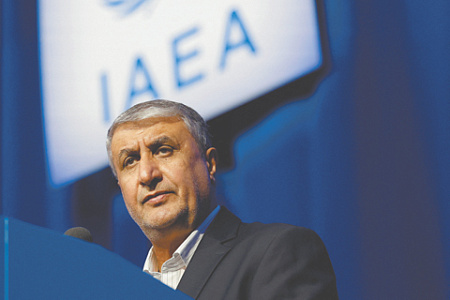
Tehran is leveraging the 69th session of the International Atomic Energy Agency (IAEA) General Conference in Vienna to push for a formal resolution prohibiting any military action against its nuclear facilities. An Iranian delegation arrived at the September 15th meeting with heightened fears of a new war with Israel and the United States, particularly following a reported Israeli strike in Qatar on September 9.
Mohammad Eslami, the head of Iran’s Atomic Energy Organization, accused the UN’s nuclear watchdog of “unprofessional behavior” and a biased neutrality for failing to condemn a previous Israeli military operation. He stated that Iran has brought a draft resolution to Vienna to formally outlaw any use of force against its nuclear industry, citing the agency’s practice of what he called “double standards.”
Iran has raised the stakes by threatening to completely halt all cooperation with the IAEA should it face another military attack. The warning comes just days after Iran and the agency signed a new, highly secretive agreement on September 9 to resume inspections that were halted in June. While details of the pact remain classified, causing suspicion among some Iranian officials, it is known to grant Tehran the right to pre-approve inspectors visiting its sites. However, Eslami admitted the agreement lacks provisions for a path forward in the event of another conflict.
Tehran’s anxieties are being fueled by recent Israeli actions. An alleged Israeli military operation in Qatar earlier this month has ratcheted up regional tensions. Concurrently, Israeli intelligence sources have warned that its Mossad agency could be “reawakened” inside Iran if Tehran attempts to recover highly enriched uranium. These warnings are underscored by reports that the Israeli Air Force is moving to upgrade its F-16 fighter fleet, the same jets allegedly used during a prior “12-day war” against Iran.
The central issue remains Iran’s stockpile of nuclear material. According to intelligence estimates, Tehran still possesses tens of kilograms of uranium enriched to 60%, a level close to weapons-grade, in addition to advanced centrifuges. While Iranian officials maintain a position of strategic ambiguity, claiming the material is inaccessible under rubble from past strikes, reports suggest Tehran may be willing to offer clarity in exchange for guarantees that international sanctions will not be reinstated.
